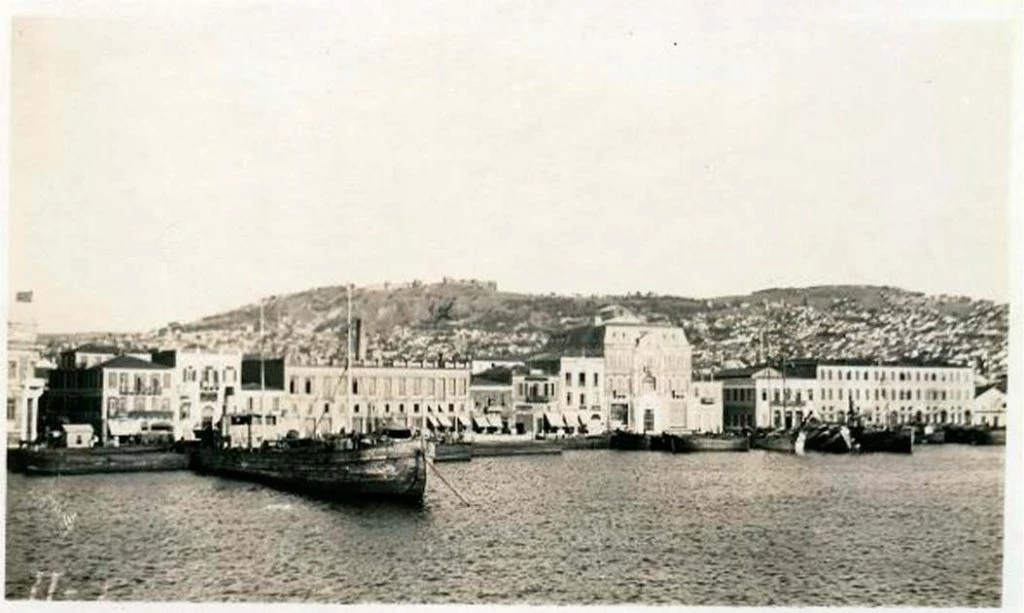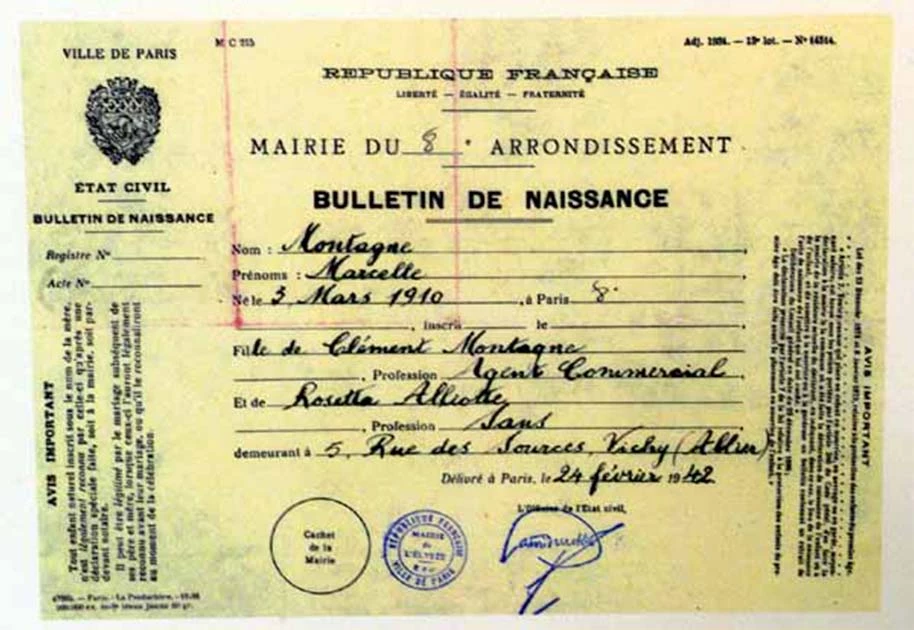Virginia Hall may just be history’s greatest spy. Her remarkable story is one of courage, determination, bravery in the face of adversity, and an unwavering commitment to duty.
While many spies operated in the shadows during World War II, Virginia Hall’s legacy stands out not only for her exceptional skills but also for her extraordinary journey. Virginia Hall, the one-legged master spy, was a woman who overcame immense odds to become a legendary figure in the world of intelligence.
This is her story.
Who was Virginia Hall?
Virginia Hall was born on April 6, 1906, in Baltimore, Maryland. She grew up in a wealthy and loving family that fostered in her a keen sense of independence and determination.
A bright young woman with a gift for languages, Hall attended both Harvard and Columbia University where she studied French, German, and Italian. She topped this education off with a stint at George Washington University where she studied French and economics.
She then left for Europe, wishing to finish her education in the real world. As a wealthy young American traveler, she toured the continent, studying in France, Germany, and Austria before landing an appointment as a Consular Service clerk at the Embassy of the United States in Warsaw, Poland in 1931.
A few months later she transferred to Smyrna (Izmir in Turkey today) where she had her first brush with tragedy. While on a bird hunt, she tripped over a fence and accidentally shot herself in the left foot.
The wound quickly became infected, and Hall nearly died from gangrene. The difficult decision was made to amputate her leg below the knee. The appendage was replaced with a wooden prosthetic that Hall affectionately dubbed “Cuthbert.”
Hall wasn’t one to stay down for long and quickly recuperated, leaving Smyrna to work as a consular clerk in Venice and in Tallinn, Estonia. Her real ambition however was to become a diplomat, but sadly ableism and sexism stood in her way.

It was uncommon for women to be hired as diplomats and the State Department had a little-known rule against hiring those it deemed to be disabled. In 1939, sick of the prejudice, Hall quit the State Department.
Hall was still in Europe when the first fighting of World War II broke out. Her sense of adventure and wish to do the right thing led to her becoming an ambulance driver for the French army in the early days of 1940. Her dedication to aiding those in need on the frontlines highlighted her unwavering commitment to service.
When France fell to the Nazi war machine in June 1940 Hall left for Spain, a neutral ground teeming with intrigue and espionage during the war. It was here she met a British intelligence officer named George Bellows, a figure who would change her life forever.
Impressed with her resilience, determination, and language skills, Bellow saw something in Hall that the State Department hadn’t. He gave her the phone number of a “friend” who might be able to help her find a job in England.
That “friend” just so happened to be Nicolas Bodington, an important figure at the newly established Special Operations Executive (SOE). Through this chance encounter, Virginia Hall found herself on the radar of an organization that specialized in covert operations and intelligence gathering. Her journey into the world of espionage had begun.
Agent Hall
Hall joined the SOE in April of 1941 and on August 23 was dropped off in Vichy France, which wasn’t occupied by the Germans and was technically independent. She was only the second female agent to be sent to France and the first to be sent there on a long-term basis.

She soon set up shop in Lyon, acting under the guise of being a New York Post reporter. This cover allowed her to interview people, gather intelligence, and use her stories to hide any intelligence she had gathered.
Her accomplishments were nothing short of extraordinary. Operating behind enemy lines in France, she played a pivotal role in organizing and coordinating resistance efforts against the Nazi occupation.
Hall used her remarkable linguistic skills and deep knowledge of the French countryside to establish a vast network of contacts. These contacts ranged from farmers and shopkeepers to resistance fighters. During her time in Lyon, she played a key role in helping downed Allied airmen escape France and make their way home.
Hall also became a proficient radio operator, transmitting critical messages to London. Her role as a communications hub between the French Resistance and the Allies was instrumental in coordinating operations and providing vital intelligence.
But for all this, one of Hall’s most impressive accomplishments was helping jailbreak 12 agents who had been arrested by the French police in October 1941. She recruited one of the prisoner’s wives, Gaby Bloch, to smuggle escape tools into the prison via tins of sardines that she delivered during her prison visits.
At the same time, Hall arranged for safe houses, escape vehicles, and helpers to aid in the escape. The men escaped on July 15, 1942, and all met up with Hall in Lyon by August 11.
All of these activities drew unwanted attention from the Nazi occupiers. But despite being pursued relentlessly by the Gestapo, Virginia Hall managed to evade capture through a combination of wit, resourcefulness, and the support of the local population.
With the Germans occupying Vichy France in force, Hall jumped on a train from Lyon to Perpignan before climbing over the Pyrenees to Spain. Despite her disability, she managed 50 miles (80 km) in two days.
- Who Was Aleister Crowley…Occultist, Satanist, and British Spy?
- Sending a Message: What was MI6 Doing With All That Semen?
After her escape, the SOE sadly concluded Hall was compromised and refused to allow her back into the field for her own safety. In response, she quit her job with the British and joined the organization’s American equivalent, the OSS (Office of Strategic Services) in 1944.
They sent her back to France as an undercover agent where she spent the next few months disguised as an old milkmaid building intelligence networks and creating safe houses. Impressed with her skills the OSS graduated her up to setting up and running French resistance groups. She spent the rest of the war making Germany’s occupation of France as unpleasant as possible for the Nazis.
A Man’s World
In 1947 Hall was one of the first women to join the CIA. Her time there wasn’t a happy one, she faced constant sexual discrimination, and despite her impressive track record was constantly looked over for promotions.
CIA leadership later admitted as much, stating, “she had been sidelined–shunted into backwater accounts because she had so much experience that she overshadowed her male colleagues, who felt threatened by her,” and that “her experience and abilities were never properly utilized.”
Thankfully, these days Virginia Hall is a legend in the espionage world and her achievements have been properly recognized. She’s highly respected for the operations she ran while in Lyon.
Hall’s leadership within the French Resistance was pivotal and became the model for how to set up resistance groups. She coordinated and led various resistance groups, effectively uniting them under a common cause. Her ability to inspire and organize resistance activities played a crucial role in undermining the Nazi occupation.
In 1945 Hall was awarded a Distinguished Service Cross by General William Joseph Donovan for her work in France. She was also given an MBE by the British and awarded the Croix de Guerre with Palme by France.

A professional spook, even after retiring Hall refused to talk about her time working for the SOE, OSS, or CIA which led to her eventually falling into obscurity. It was only after her death that interest in one of history’s greatest spies was reignited.
Virginia Hall’s story is one of indomitable spirit. Her path was fraught with challenges, from the hunting accident that cost her a leg to the perilous missions she undertook behind enemy lines. Yet, she faced each obstacle with unyielding resolve.
What sets Virginia Hall apart is not just her incredible espionage achievements but the way she operated with humility and empathy. She won the trust of the French Resistance and the local population, fostering an environment of cooperation that proved vital in the fight against the Nazis.
Her fame as “The Limping Lady” symbolizes her unique place in history. She was more than a spy; she was a symbol of hope and resistance during one of the darkest periods in human history.
Top Image: Virginia Hall was a spymaster extraordinaire during the Second World War, but was marginalized in the following years. Source: Jeffrey W Bass / Public Domain.